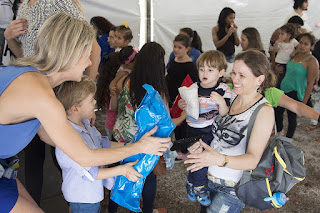Innovative Pedagogies: #3 Place-based Learning
This Innovative Pedagogies series is based on the article Innovative Pedagogies of the Future: An Evidence-based Selection that offers “a set of innovative, evidence-based pedagogical approaches that have the potential to guide teaching practitioners and transform learning processes and outcomes.” The past few years have seen rapid adoption in educational technology, and this series offers ideas for changes in the practice of teaching and learning to accompany those technology advancements.
Did you know that service-learning is an innovative pedagogical approach? In the literature, service-learning is a type of place-based learning. Place-based learning provides students with practical challenges encountered in their local communities. This type of learning may also be structured as problem-based learning. An example of problem-based learning is asking marketing students to meet with real world small business owners and design marketing plans and materials to help the business owner grow the business. The idea of all place-based learning is to connect classroom and textbook concepts through experiential learning to acquire skills and make connections.
This type of learning often leads to further explorations or experimentation by students that helps them uncover interests and directions for their future. Ernst and Monroe (2004) found in a study of 400 high school students that environment-based teaching significantly improved students' critical thinking skills, and at the same time also improved their attitude toward critical thinking. Herodotou et al. in the place-based learning section of the article “Innovative Pedagogies of the Future: An Evidence-based Selection” explain the critical thinking component in this way; “place-based learning requires creativity and innovation by participants to manage and respond to often unexpected circumstances with unexpected learning opportunities and outcomes likely to arise.”
Place-based learning pre-dates institutional learning. It returns to the idea of practicing learned concepts in an everyday, familiar context for the student. Why learn to write well? What is the benefit of understanding the periodic table of elements? Where is algebra useful? These are all questions that can be answered through place-based learning. You can answer the perpetual student question of “why do I have to learn this? by finding a place for them to apply what they are learning off campus. Consider creating a problem-based project in your course, or contact the SCC Office of Service-learning & Leadership and create this transfer of learning that benefits the student and community alike.

Comments
Post a Comment